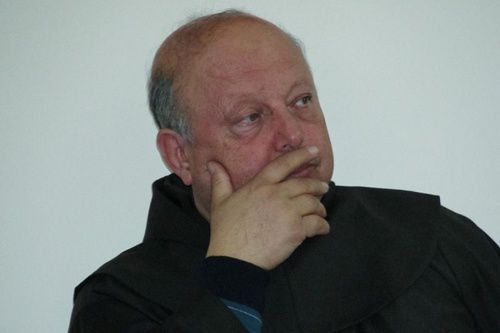Militants linked to al-Nusra Front kidnapped a Catholic parish priest and as many as 20 people from a Christian village in Syria on Sunday night. The priest has been identified as 62-year-old Father Hanna Jallouf, O.F.M. “Let us pray for him and for the other victims of this tragic and senseless war,” the Custody of the Holy Land said on its website. The Custody of the Holy Land, which oversees Franciscan activity in the region, said the priest was kidnapped with several men from the Christian village of Qunaya on the night of Oct. 5-6. Qunaya is located in Syria's Idlib province, 29 miles west of Idlib, and 75 miles northwest of Hamah. “We are not able to say where Father Hanna and his parishioners are now and, at this time, we have no possibility of contact with him or his captors,” the Custody said. Bishop Georges Abou Khazen, O.F.M, vicar apostolic of Aleppo, told Fides that about 20 persons had been kidnapped, including “young people, both boys and girls,” and that the village monastery had been looted. Father Pierbattista Pizzaballa, Custodian of the Holy Land, told Agence France Press that 20 villagers had been kidnapped along with the priest, a Syrian who has worked in the village for 12 years. The Franciscan nuns at the convent in Qunaya have taken refuge in neighboring houses. Before the Syrian civil war began, they ran the village’s youth center, kindergarten, and clinic. Fr. Pizzaballa said the militants accused the kidnap victims of collaborating with the government of president Bashar al-Assad, a claim that the Custodian denied. One source told Agence France Press that the rebels were angry with Fr. Jallouf because he refused to give them olives harvested from trees on the convent’s land. A Syrian activist reported that al-Nusra Front had been trying to take control of some Franciscan properties in the Qunaya, resulting in Fr. Jallouf making a complaint to a religious court. The Franciscans have been present in Syria for 800 years, and established a presence in Qunaya in 1878. The kidnapping is the latest in a series of attacks on Christian religious in the Syrian civil war. In April, Fr. Frans van der Lugt, S.J., was murdered in Homs as he cared for the fewer than 30 Christians who remained in the city which had been blockaded by the Syrian regime for nearly two years. A Dutchman, he had worked in Syria since 1967, was involved in interreligious dialogue, and had built a spirituality center which housed some 40 children with mental disabilities. In December 2013, a group of Greek Orthodox nuns as well as women from their convent's orphanage were abducted by al-Nusra Front in Ma'loula, 35 miles north of Damascus. They were returned, unharmed, in March. In July 2013, Fr. Paolo Dall'Oglio, S.J., was abducted from Raqqa, a city controlled by the Islamic State. He had served the people of Syria for more than 30 years, and had been exiled by the regime in 2012 after criticizing Assad. While in Rome in September 2012, Fr. Dall'Oglio spoke to CNA with hope for Syria's future. Though officially exiled, he soon returned to minister in rebel-held areas of Syria. In October 2013, three months after his kidnapping, he was reported to be alive, but he remains missing. In April 2013, both the Greek and Syriac Orthodox bishops of Aleppo, Boulos Yazigi and Yuhanna Ibrahim, were kidnapped. Their driver, Deacon Fatha' Allah Kabboud, was killed. The bishops remain missing, though it has been rumored that only one of them is still alive. And in October 2013, seven relief workers from the Red Cross and Red Crescent were abducted. Four were released one day after their capture, but three remain missing. The Syrian conflict began in March, 2011 when demonstrations sprang up nationwide against Assad's rule. In April of that year, the Syrian army began to deploy to put down the uprisings, firing on protesters. Since then, the violence has morphed into a civil war which has claimed the lives of more than 191,000 people. The civil war is being fought among the Syrian regime and a number of rebel groups. The rebels include moderates, such as the Free Syrian Army; Islamists such as al-Nusra Front and the Islamic State; and Kurdish separatists. The war has resulted in more than 3 million Syrian refugees in nearby countries, most of them in Lebanon, Turkey, and Jordan. An additional 6.5 million Syrian people are believed to have been internally displaced by the war.

